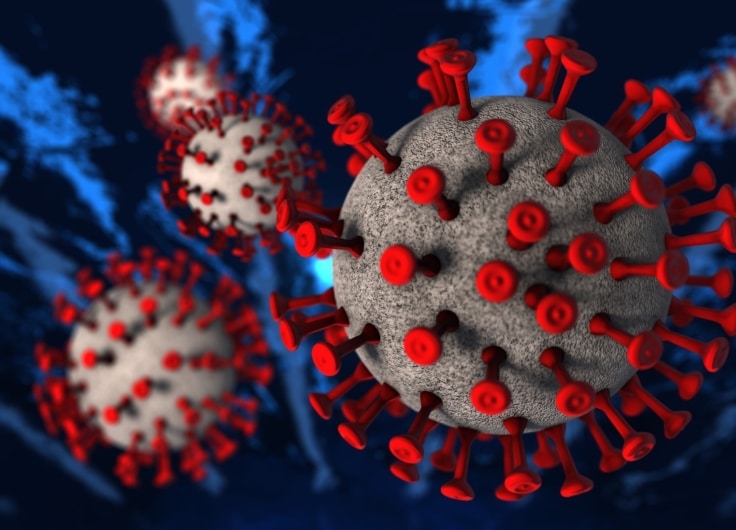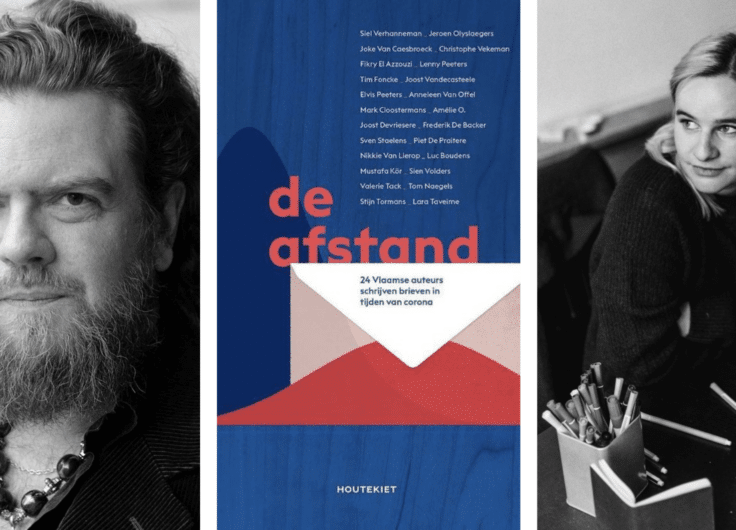Belgium: A Vaccine Country
The presence of large vaccine-producing companies, strong academic research and intensive cooperation have made Belgium a vaccine country.
Whether it is research into a vaccine against COVID-19, production or the testing of candidate vaccines, at every stage of the development Belgium plays a leading role in Europe and even in the world, says Luc Debruyne. The former top manager of the Belgian and international pharmaceutical industry is now a strategic advisor at CEPI (Coalition for Epidemic Preparedness Innovations), an institute that has been dedicated to the prevention of epidemics around the world for about three years. As such, he is closely involved in the race for a COVID-19 vaccine.
 Luc Debruyne, strategic advisor at CEPI
Luc Debruyne, strategic advisor at CEPIIndeed, there is no need to look far for an illustration of that frontline role. According to Pharma.be, the body that represents the Belgian pharmaceutical sector, Belgium accounts for almost a quarter of all hospital trials of candidate vaccines in Europe.
The fact that Belgium can present itself as a vaccine-producing country has a lot to do with the presence of the British pharmaceutical company GSK, which is by far the largest manufacturer of vaccines in the world. For many years, Walloon Brabant has been the heart of its vaccine-related activities. The American pharmaceutical company Pfizer and the French Sanofi, two more of the top four vaccine manufacturers, are also present in Belgium. And what’s more, Johnson & Johnson, another large pharmaceutical group active in Belgium thanks to its subsidiary Janssen Pharmaceutica, is currently making a mega-investment in research into and the production of a COVID-19 vaccine. Even though these investments are mainly abroad, the Belgian contribution to the advance of Johnson & Johnson as a vaccine manufacturer is highly visible. The scientific director and the head of the vaccine department both come from Belgium.
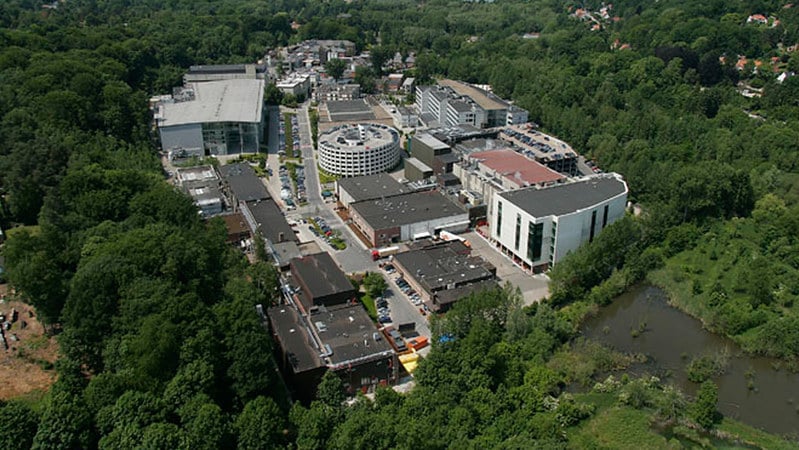 The research centre of GSK in Rixensart, in Walloon Brabant, where 2,000 vaccine researchers work.
The research centre of GSK in Rixensart, in Walloon Brabant, where 2,000 vaccine researchers work.© GSK
Race against time
‘It’s pretty logical then that many Belgians are closely involved in the race for a COVID-19 vaccine’, says Debruyne. Certainly at GSK. The British pharmaceutical company has joined forces with the French Sanofi in the search for a COVID-19 vaccine. Part of the research is being done in the gigantic research centre in Rixensart, in Walloon Brabant, where a good 2,000 vaccine researchers work.
‘This is an unprecedented collaboration’, says Jamila Louahed, who is in charge of research and development of vaccines in Rixensart. ‘But we are faced with an unprecedented health crisis, too. Now it’s a question of putting all our knowledge together, so that we can find an effective vaccine against COVID-19 as soon as possible.’
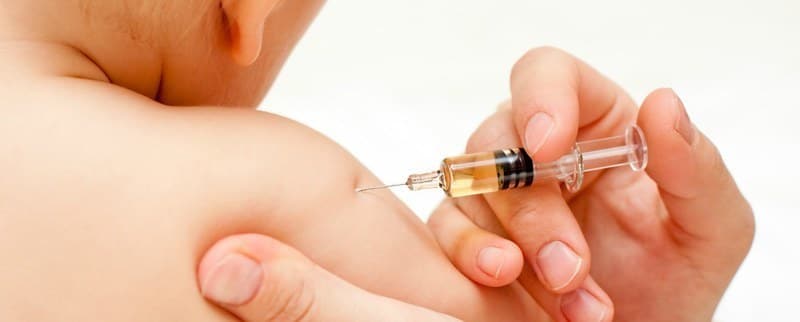 The prospect that billions of people will need to be vaccinated as fast as possible, once one or more vaccines are ready, is compelling.
The prospect that billions of people will need to be vaccinated as fast as possible, once one or more vaccines are ready, is compelling.© Flickr
However, it is not only the search for a vaccine that is a race against time, she warns. The prospect that billions of people will need to be vaccinated as fast as possible, once one or more vaccines are ready, is compelling.
In GSK and Pfizer, Belgium has two companies within its borders with large factories for the production of considerable quantities of the vaccine. ‘As a result, Belgium ranks first in the number of vaccines produced per head of the population’, says Debruyne.
At any rate, the chances that corona vaccines will be produced in Belgium too are high, certainly if GSK and Pfizer succeed in developing an effective vaccine against the novel coronavirus. Both companies are working on plans to expand their production capacity in the country.
In search of factories
Even if they do not succeed in developing a vaccine themselves, it is inevitable, according to Debruyne, that the pharmaceutical companies will eventually make agreements to increase and share their existing production capacity worldwide. That is the only way to guarantee that vaccines will be widely available as soon as possible. Brand new factories are not an option. ‘We’d have to wait easily five years before they could make the first vaccines’, estimates Debruyne.
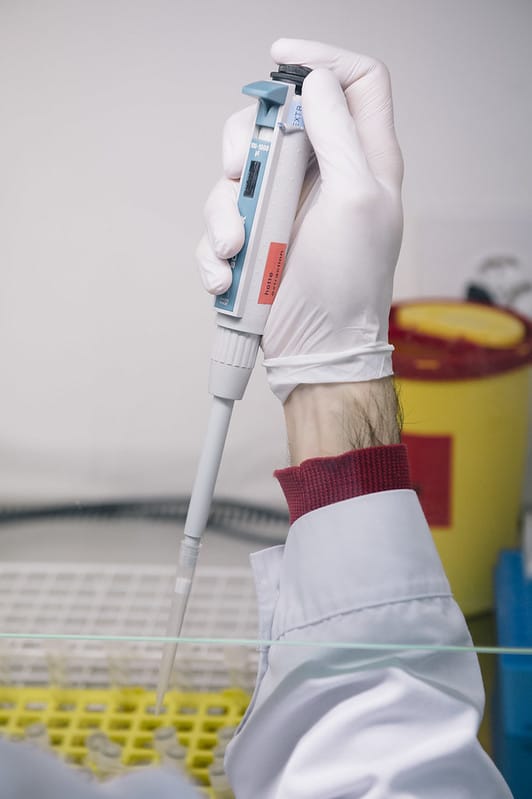
© Flickr
According to him, rapidly identifying which companies can contribute to starting and expanding production as quickly as possible is one of the major tasks. The CEPI institute is already working on it.
Johan Van Hoof, who heads Janssen Vaccines, the vaccine division of Johnson & Johnson, points out however that rapid, large-scale production will not be so easy. He does not expect it to be possible to produce all the vaccines that are finally developed in the same way. Not every vaccine factory is a priori suitable for the production of a corona vaccine either. Janssen Vaccines itself is aiming for the production of a billion doses by the end of 2021.
Not just for the happy few
The question remains whether these intensive activities in Belgium will automatically mean that the vaccine will be available there quickly. Nobody really wants to say so, although there is a good chance that Belgians will be close to the source.
The vaccine companies maintain that they are doing everything in their power to produce vaccines as fast and in the largest quantities possible. ‘There must be international agreements between governments on the distribution of the vaccine. After all, it will be impossible to vaccinate everyone at the same time’, warns Jamila Louahed of GSK. The scenario we have to avoid is that access to the vaccine depends on a country’s geopolitical power relations or on the fact that there is domestic production’, adds Luc Debruyne.
The scenario we have to avoid is that access to the vaccine depends on a country’s geopolitical power relations
Does the fact that an American government agency pays half of the 1-billion-dollar investment in the COVID-19 vaccine mean that the United States will get priority? Johan Van Hoof has faced that question several times already. ‘Obviously, we will produce for the American market, but we work first and foremost for the whole world, not just for the happy few.’
This article was first published in De Standaard on 13 May 2020.



